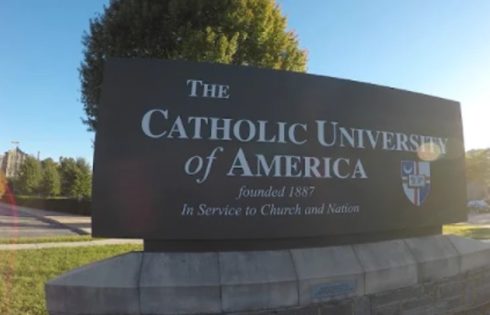
 If there is one certain result of the Occupy Wall Street movement and its many metastases, it is the increasing smugness of its opponents. Whether or not you agree with the one or any of the many divergent cardboard signs or shouted epithets of the movement, this — like any articulation of discontent — deserves a respectful, well-reasoned consideration. However, as is becoming evermore typical in digital media, opponents of OWS are far more likely to deride the protesters than to thoughtfully consider the protest.
If there is one certain result of the Occupy Wall Street movement and its many metastases, it is the increasing smugness of its opponents. Whether or not you agree with the one or any of the many divergent cardboard signs or shouted epithets of the movement, this — like any articulation of discontent — deserves a respectful, well-reasoned consideration. However, as is becoming evermore typical in digital media, opponents of OWS are far more likely to deride the protesters than to thoughtfully consider the protest.
Last week, Alex Taborrok of Marginal Revolution presented that frustration over student debt expressed by some Occupy Wall Street protesters is invalid because those protesters, according to him, studied the wrong subjects:
Educated people have higher wages and lower unemployment rates than the less educated so why are college students at Occupy Wall Street protests around the country demanding forgiveness for crushing student debt? The sluggish economy is tough on everyone but the students are also learning a hard lesson, going to college is not enough. You also have to study the right subjects. And American students are not studying the fields with the greatest economic potential.
It is not only a personal moral failing to study liberal arts or “soft sciences,” according to his column, but also a dastardly weakness in future American power: “Most importantly, graduates in the arts, psychology and journalism are less likely to create the kinds of innovations that drive economic growth.”
Mr. Taborrok’s sentiments that apparent limp sciences like psychology should not neither be subsidized for considered in any way legitimate in concerns about student debt and employment are echoed rather unfortunately by Josh Barro for the National Review. In reaction to a column in the Washington Examiner defending the worth of studying classics:
[Majoring in classics] is reasonable advice for students at certain colleges–highly selective ones–but is bad advice for the general public. Only if you’re at a top 10 or 20 school do you have the luxury of picking a major that does give you job-specific skills and still being confident that you will find a good job after graduation.
…
[M]ost students can’t rely on a combination of natural aptitude, writing skills and diploma prestige to land a good job. If you’re at Arizona State, majoring in Greek is probably a big mistake.
In his derision of the choices of everyone who didn’t go to Harvard, Barro illustrates exactly the kind of unholy binary critics of the current system of higher education would protest, from tents in parks or from the turrets of academia. Is only the 1% fit for studying liberal arts?
Barro argues that if you have the resources and sheer luck to attend an elite college, you can study subjects that you deem have worth and interest — because, after all, the name of your school will get you a job. But if you don’t have the good fortune to be born in an area rich enough to have strong schools that promote college as an attainable goal, to say nothing of the resources (of mind or pocketbook) you will need to complete a degree at an elite college, you must study something that will directly prepare you for a specific job. This is interesting in contrast to Taborrok’s argument: one must also come from an area rich enough to have schools that prepare students for rigorous scientific study in order to pursue engineering. Students who don’t come from a strong high school are prepared neither for Barro’s 1% nor Taborrok’s imagined U.S. Economic Army.
Barrow and Taborrok both oppose the perspective of some Occupy Wall Street cardboard signs that student loan debt is a legitimate concern for immediate policy change on the grounds that, well, you knew what you were getting yourself into when you read Livy in the original instead of going to mechanic school. They are correct on this point — as Will Wilkinson deftly pointed out in reaction to Taborrok’s column, the fact that engineering majors are employed more often at a higher wage than philosophy majors is absolutely no secret. But both are wrong that a society should not allow its citizens to study whatever they deem of worth of study. Just as it is contrary to personal autonomy to drug test recipients of welfare, it is contrary to the tenets of a free society to dictate what fields of study should be is subsidized.
What precludes the freedom to choose one’s field of study? Who decides who is worthy of studying classics and who, though he may enjoy and be good at classics, is granted only the opportunity to learn how to repair the Lexus of a classics-concentrating Harvard alum?
Though cardboard tent-banners may be an unconvincing rhetorical strategy, the Occupy Wall Street protesters bring up a very real, quite important argument about the worth of a college degree, monetary and otherwise. The current administration has pinned their wispy hopes on the assumption that generating and subsidizing more college degrees will be a panacea for the curious affliction that ails us. However, the unemployment rate for college graduates rose to 9.1% in 2010. Will this policy fix that, or has this policy caused it?
Regardless, these debates will not be solved by a pitying sigh of, “Well, you’d be fine if you’d studied engineering.”
Anna Swenson is the editor of the Arizona Desert Lamp. She is a contributor to The College Fix.
Photo credit: glans galore (Flickr Creative Commons)
Like The College Fix on Facebook / Follow us on Twitter





Please join the conversation about our stories on Facebook, Twitter, Instagram, Reddit, MeWe, Rumble, Gab, Minds and Gettr.